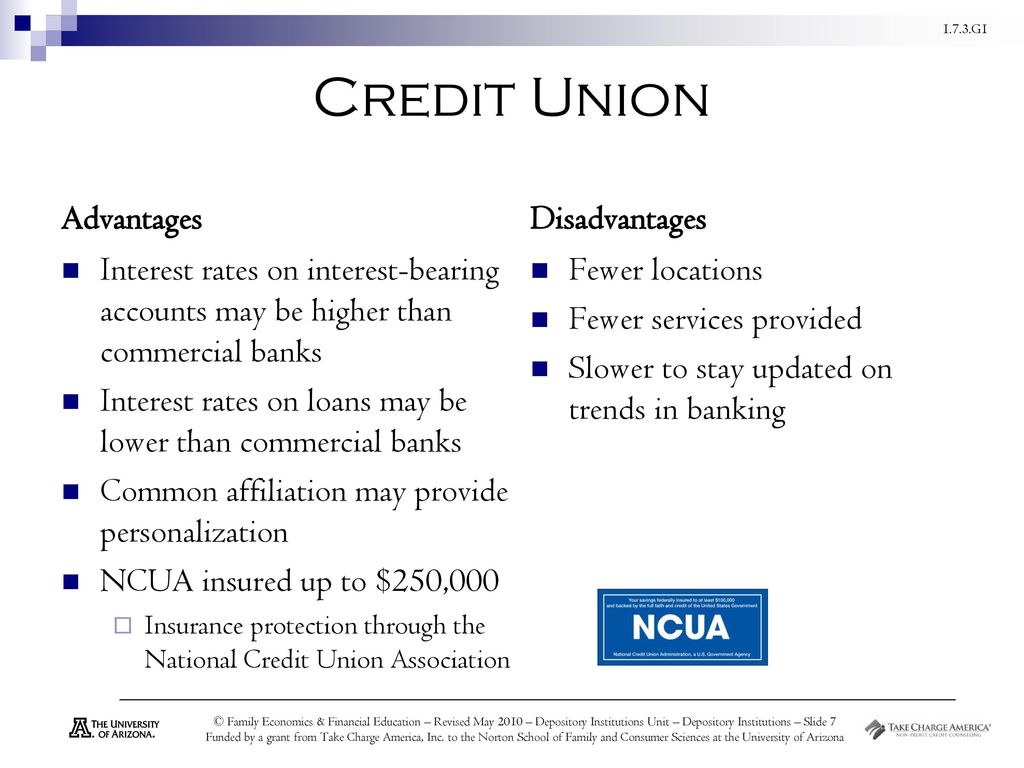The Ultimate Overview to Comprehending Cooperative Credit Union

Credit score unions stand as unique monetary entities, rooted in concepts of common assistance and member-driven operations. As we navigate with the intricacies of credit score unions, an insightful trip awaits to lose light on these member-focused organizations and how they differ from typical banks.
What Are Cooperative Credit Union?
Cooperative credit union are member-owned banks that supply a variety of financial solutions to their members. Unlike standard banks, debt unions operate as not-for-profit organizations, indicating their main focus is on serving their members instead of optimizing earnings. Members of a credit report union commonly share a common bond, such as benefiting the very same company, coming from the exact same neighborhood, or belonging to the exact same company.
One of the key advantages of credit report unions is that they commonly offer greater rates of interest on cost savings accounts and lower rates of interest on fundings contrasted to financial institutions. Credit Union in Wyoming. This is because cooperative credit union are structured to benefit their members straight, permitting them to pass on their incomes in the type of much better rates and less costs. Additionally, lending institution are known for their customized customer support, as they prioritize building relationships with their members to understand their unique financial needs and objectives
Background and Development of Lending Institution
The roots of member-owned financial cooperatives, known today as debt unions, trace back to a time when communities looked for choices to traditional financial establishments. The principle of lending institution stem in the 19th century in Europe, with Friedrich Wilhelm Raiffeisen frequently credited as the pioneer of the cooperative banking activity. Raiffeisen established the first identified lending institution in Germany in the mid-1800s, stressing neighborhood support and self-help concepts.
The development of credit scores unions proceeded in The United States and Canada, where Alphonse Desjardins established the initial debt union in Canada in 1900. Soon after, in 1909, the first united state cooperative credit union was formed in New Hampshire by a team of Franco-American immigrants. These very early cooperative credit union operated on the fundamental concepts of shared assistance, autonomous control, and participant ownership.
Over time, cooperative credit union have expanded in popularity worldwide due to their not-for-profit structure, concentrate on offering members, and supplying competitive monetary product or services. Today, cooperative credit union play an important duty in the economic industry, giving community-oriented and available financial alternatives for services and people alike.

Membership and Eligibility Requirements
Membership at a credit scores union is generally limited to individuals satisfying specific qualification requirements based upon the organization's beginning principles and regulatory requirements. These standards usually consist of variables such as geographical place, work status, subscription in specific companies, or association with certain groups. Credit score unions are recognized for their community-oriented method, which is reflected in their subscription needs. Credit Unions in Wyoming. Some credit score unions might just offer individuals that function or live in a specific area, while others may be customized to workers of a specific business or participants of a certain organization.
Furthermore, lending institution are structured as not-for-profit organizations, indicating that their primary objective is to serve their members instead of generate profits for shareholders. This emphasis on participant service frequently translates right into more personalized focus, lower charges, and competitive rate of interest rates on cost savings and lendings accounts. By fulfilling the qualification criteria and ending up being a participant of a cooperative credit union, individuals can access an array of monetary items and solutions customized to their details Federal Credit Union demands.
Providers and Products Provided
Among the vital aspects that sets credit score unions apart is the diverse series of financial solutions and products they provide to their participants. Credit history unions typically offer standard financial solutions such as financial savings and checking accounts, finances, and charge card. Participants can additionally profit from investment solutions, consisting of pension and financial planning assistance. Lots of cooperative credit union offer affordable rates of interest on interest-bearing accounts and car loans, along with reduced charges compared to standard banks.
Additionally, credit score unions commonly supply practical online and mobile financial choices for members to easily handle their funds. They may provide benefits such as shared branching, allowing participants to access their accounts at other lending institution across the nation. Some cooperative credit union also give insurance policy products like home, vehicle, and life insurance coverage to help members secure their properties and liked ones.

Benefits of Banking With Cooperative Credit Union
When considering monetary institutions, discovering the benefits of financial with cooperative credit union exposes unique benefits for members seeking individualized solution and affordable prices. One considerable benefit of credit scores unions is their focus on individualized client service. Unlike big financial institutions, credit report unions are member-owned and focus on building strong connections with their participants. This implies that cooperative credit union personnel usually have a deeper understanding of their members' financial requirements and can use customized remedies to help them accomplish their objectives. In addition, lending institution are understood for supplying competitive rate of interest prices on financings and cost savings accounts. Because they are not-for-profit companies, cooperative credit union can frequently offer lower car loan rates, higher savings rates, and reduced fees compared to traditional banks. This can lead to significant expense savings for members over time. On the whole, financial with a lending institution can supply a much more tailored, affordable, and member-centric financial experience.
Final Thought
In verdict, debt unions stand out as member-owned financial establishments that prioritize offering their members over optimizing revenues. With beginnings dating back to 19th century Europe, credit rating unions comply with concepts of common assistance and participant possession.
Debt see here unions are member-owned monetary organizations that use an array of financial solutions to their participants. The principle of credit unions originated in the 19th century in Europe, with Friedrich Wilhelm Raiffeisen typically attributed as the leader of the participating financial activity.The evolution of credit report unions proceeded in North America, where Alphonse Desjardins official statement established the initial credit scores union in Canada in 1900. Debt unions generally offer traditional financial services such as financial savings and checking accounts, lendings, and credit cards.When taking into consideration monetary institutions, checking out the benefits of banking with debt unions reveals unique advantages for members seeking customized solution and affordable rates.